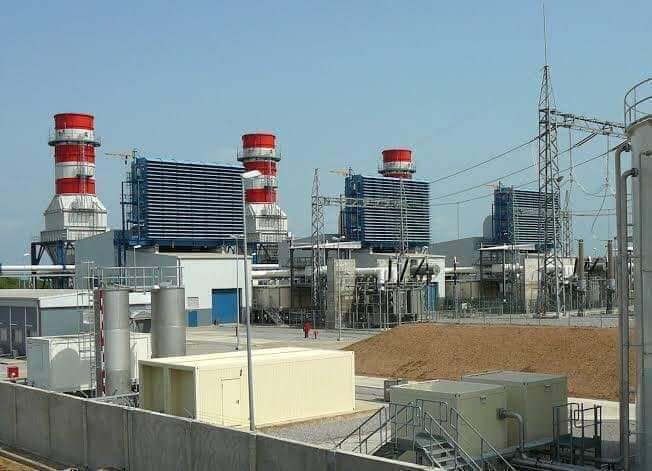Nigeria
Power Generation Drops by 1,400MW as Discos Reject Allocations

Power generation suffers a significant decline of 1,400MW as distribution companies (Discos) turn down allocated electricity. Implications and details inside.
The refusal of electricity distribution companies to receive the power allotted by the Federal Government appears to hamper efforts in boosting power generation.
In a statement released on Sunday, Adebayo Adelabu, the Minister of Power expressed his disappointment over electricity distribution companies refusing to accept power and considered it an unfortunate situation.
The minister reported that generation reached its maximum limit of 5,170 megawatts on Friday. However, due to the incapacity of Discos in picking up the supply, it had to be reduced by 1,400MW as per his regretful statement.
Adelabu expressed his regret over the situation and emphasized that it was particularly unfortunate since the government had plans to reach a generation capacity of 6,000MW by year-end.
During a facility tour of TBEA Southern Power Transmission and Distribution Industry in Beijing, China, the minister revealed this information.
While attending the China-Africa Cooperation Summit, Adelabu revealed that substation and distribution line construction will be supported by a release of $800m from the Federal Government as part of their Presidential Power Initiative.
He stated that $400m will be spent on the installation of substations for Lot 2, and another $400m would cover the cost of constructing substations as well as distribution lines for Lot 3.
Benin, Port Harcourt and Enugu distribution companies’ franchise areas fall under Lot 2 while Abuja, Kaduna, Jos and Kano DisCos’ franchise areas are covered by Lot 3.
Adelabu reassured TBEA management of the Federal Government’s dedication to collaborate with leading organizations such as theirs to realize President Bola Tinubu’s Renewed Hope vision for the power sector. This partnership would focus on transmission and distribution improvements, alongside developing renewable energy solutions. The assurance was given during an interactive session with TBEA management.
The minister addressed the obstacles hindering industrial growth in the power sector and acknowledged that a significant contributing factor was the delicate state of transmission and distribution infrastructure. The aged, deteriorating condition resulted in constant unreliable delivery of electricity to households, industries, and businesses – an issue that has persisted over time.
He stated that over 59 percent of Nigerian industries operate without access to the national power grid.
According to him, many individuals now generate their own power due to the lack of trust in the national grid’s reliability and dependability.
According to the power minister, there is a steadfast commitment from the government to overhaul and modernize the energy sector. He highlighted that various initiatives have been initiated which are slowly restoring faith in this industry.
According to the minister, 40 years ago Nigeria had a capacity of producing 2,000MW and it took more than three decades before an additional 2,000MW was added.
READ ALSO: Nigeria’s Electricity Generation Falls to 3,521 MW
Last year, when this administration took office, the power supply was at 4,000MW. However, within a span of one year we successfully generated about 5,170 MW – an increase of approximately 1 ,00oMW in just twelve months! Though it appears modest compared to previous records”, yet our achievement is praiseworthy”.
According to him, our objective is to attain 6,000MW of power by the year-end using both hydroelectric and gas-fired power plants. Moreover, we are striving for a generation capacity of 30,000 MW till 2030 that includes renewable energy constituting thirty percent.
The minister emphasized that the area of renewable energy will be derived from a blend including hydroelectricity generated by small dams, solar sources, and onshore as well as offshore wind farms.
Huang Hanjie, the President of TBEA, affirmed that his organization will persist in endorsing Nigeria’s power sector vision.
TBEA, as per his statement, has a presence in 100 countries globally and is open to sharing its expertise on energy provision.
According to him, TBEA is not a new entity in Nigeria and he mentioned that the company is currently engaged with the Omotosho power plant located in Ondo State.
According to Hanjie, TBEA is prepared to collaborate with the Nigerian government in realizing its objectives and playing a vital role in advancing the power industry revolution presently underway within Nigeria.
The Nigerian Electricity Regulatory Commission implemented stringent penalties in July for Discos found to be engaging in misconduct that can cause harm to consumers.
NERC announced that any electricity distribution firm failing to distribute at least 95 per cent of the total energy assigned for delivery would face a reduction in administrative and operational expenses up to five per cent.
According to the Performance Monitoring Framework Order by the commission, all Discos must take up at least 95% of their available nominations each month. Failure to do so will result in a rectification directive being issued.
